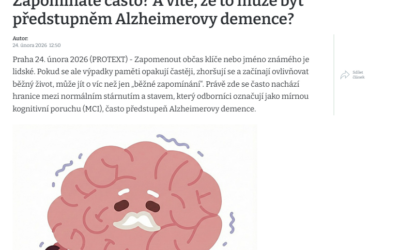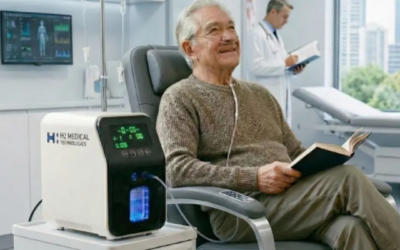H2 and Alzheimer’s Disease
Alzheimer’s disease is one of the most pressing health challenges of the 21st century, affecting millions of people worldwide. Despite extensive research, there is currently no cure that can halt its progression. Existing pharmaceutical treatments mainly focus on symptom management, but their effectiveness is limited, and they often come with unwanted side effects.
Recent scientific discoveries suggest that molecular hydrogen could play a crucial role in preventing and supporting the treatment of neurodegenerative diseases, including Alzheimer’s disease. Thanks to its unique properties as a selective antioxidant and anti-inflammatory agent, molecular hydrogen has the potential to slow cognitive decline and protect brain cells.
How Does Molecular Hydrogen Benefit the Brain?
Alzheimer’s disease is closely linked to chronic oxidative stress and inflammation in the brain, which lead to progressive neuronal degeneration and cognitive decline. Molecular hydrogen helps counteract these processes in several key ways:



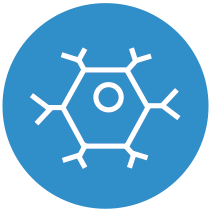


1. Neutralising Free Radicals and Reducing Oxidative Stress
One of the primary drivers of Alzheimer’s disease is the damage caused by free radicals to brain cells. Molecular hydrogen is a highly selective antioxidant that targets and neutralises only the harmful hydroxyl radicals (•OH), without interfering with essential physiological processes.
2. Protecting and Restoring Mitochondrial Function
Mitochondria, the powerhouses of cells, are crucial for brain health. In Alzheimer’s patients, mitochondrial function is often impaired, leading to an energy deficit that contributes to neuronal death. Molecular hydrogen supports mitochondrial repair and protection, reducing harmful reactive oxygen species (ROS) and improving overall cellular metabolism.
3. Anti-Inflammatory Effects
Chronic inflammation plays a major role in the progression of Alzheimer’s disease. Molecular hydrogen helps regulate inflammatory pathways such as NF-kB and Nrf2, reducing the production of pro-inflammatory cytokines. This leads to a reduction in neuroinflammation and protection of brain tissue from further damage.
4. Supporting Neurogenesis and Neuronal Connectivity
A promising aspect of molecular hydrogen therapy is its ability to stimulate the growth of new neurons and enhance synaptic plasticity, which can improve memory, learning, and other cognitive functions.
5. Preventing Amyloid Plaque Formation
Amyloid plaques, formed by the accumulation of beta-amyloid protein, are a hallmark of Alzheimer’s disease. These plaques disrupt neuronal communication and contribute to brain degeneration. Molecular hydrogen influences cellular signalling pathways that regulate amyloid plaque formation, helping to protect brain cells from damage.
6. Repairing Oxidised Heme Proteins
Heme proteins play a vital role in oxygen transport and energy metabolism. When oxidised, they lose their function, contributing to neurodegeneration. Molecular hydrogen has been shown to restore the structure and function of heme proteins, promoting neuronal health and vitality.
Scientific Studies Confirming the Benefits of Molecular Hydrogen

- Ohta Study (2018): A six-month trial found that hydrogen inhalation significantly improved ADAS-Cog scores (a key measure of cognitive function in dementia patients), with lasting benefits observed even one year after treatment ended.
- Case Study (2022): A 79-year-old patient with advanced Alzheimer’s showed marked improvements in neuronal integrity and motor function after two years of hydrogen therapy.
- Study Published in Dementia & Geriatric Cognitive Disorders (2023): Findings indicated that hydrogen therapy slowed cognitive decline and enhanced the quality of life in Alzheimer’s patients.
Patented Treatment Approach
We have obtained patents for a promising method of treating Alzheimer’s disease using molecular hydrogen.
This innovative approach reduces oxidative stress, a key factor in the pathogenesis of Alzheimer’s. It offers long-term improvement in cognitive functions and overall quality of life for patients. .
The graph shows the change in ADAS-Cog (with a lower value indicating improvement, a higher value indicating deterioration) since the initial time of inhalation of molecular hydrogen gas. Participants inhaled molecular hydrogen for 1 hour twice daily for 6 months. This period was followed by a 1-year period without inhalation. The ADAS-Cog was performed for the first 6 months (H₂ patients only) and every 6 months thereafter.
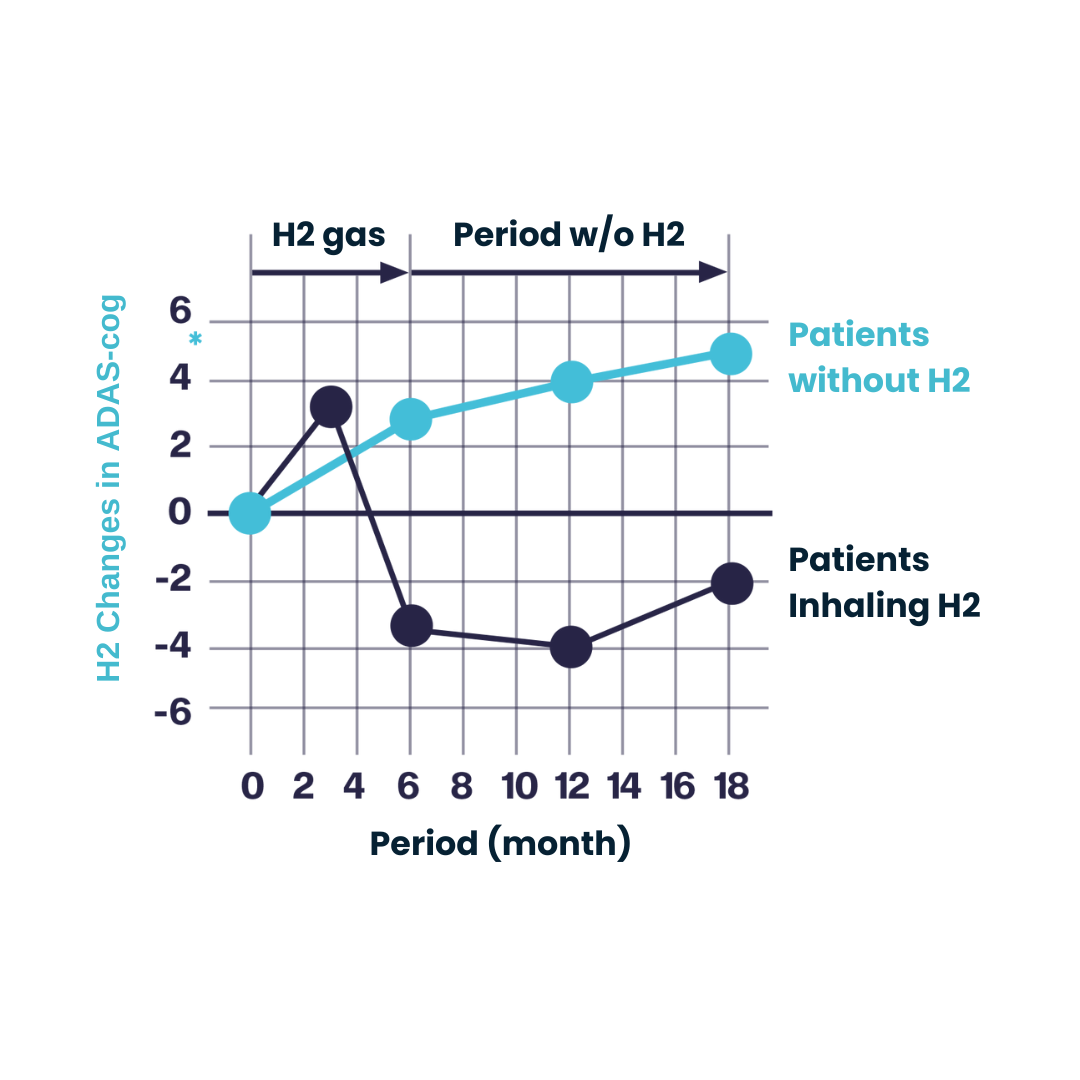
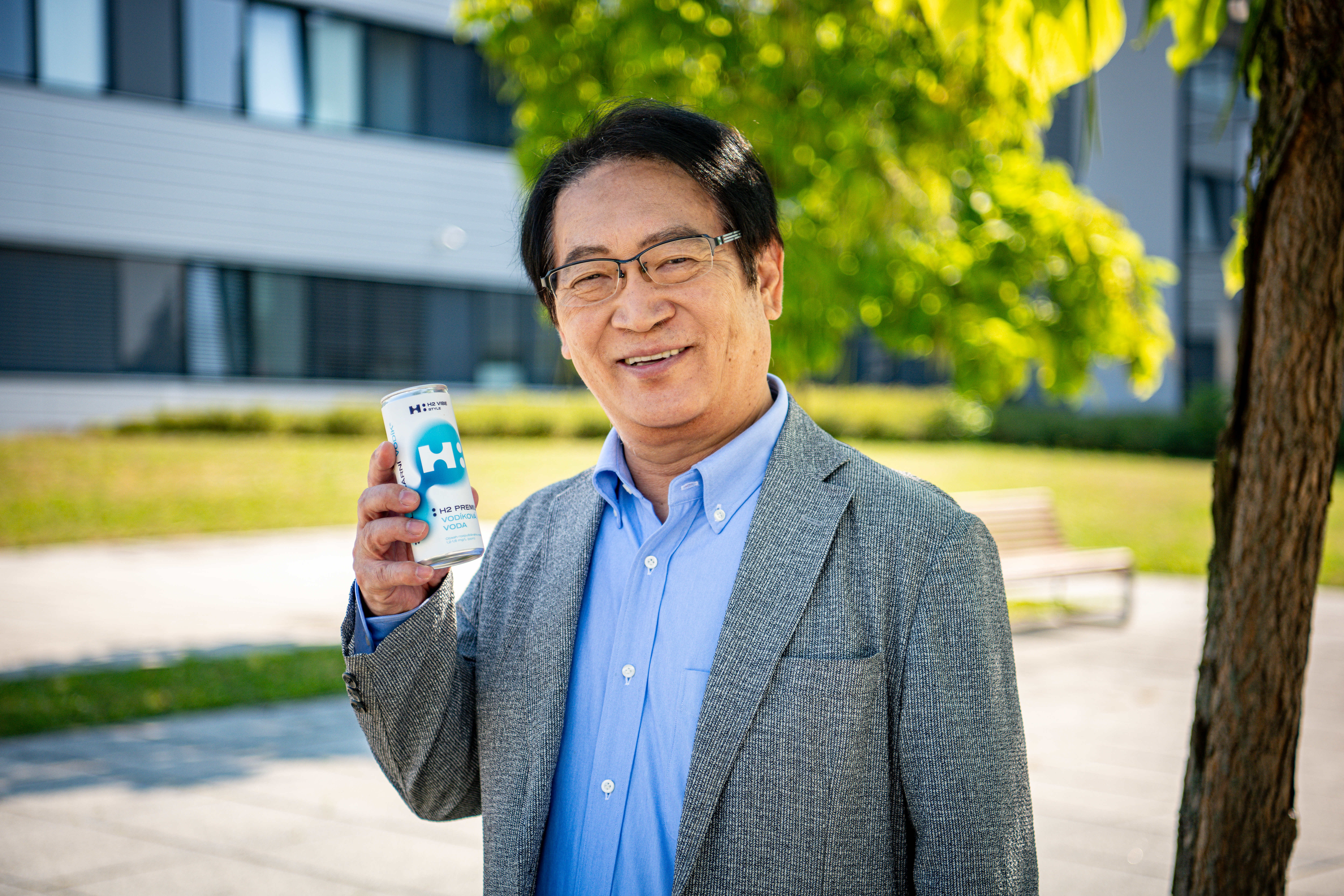
Professor Shigeo Ohta is a pioneering scientist in the field of molecular hydrogen research, whose groundbreaking discoveries have redefined its medical applications. His 2007 study published in Nature Medicine demonstrated that molecular hydrogen acts as a selective antioxidant, neutralizing harmful hydroxyl radicals without disrupting essential cellular processes.
This discovery positioned hydrogen as a safe and highly effective therapeutic agent for conditions linked to oxidative stress. Since then, Ohta has led extensive research into hydrogen’s role in neuroprotection, including its potential to slow Alzheimer’s disease progression by protecting neurons, reducing inflammation, and improving cognitive function.
Understanding Alzheimer’s and Hydrogen Therapy
We are not only pioneering molecular hydrogen research but also advancing technological solutions to deepen our understanding of Alzheimer’s disease. Our proprietary brain simulation software models the complex interactions within the human brain affected by Alzheimer’s pathology, allowing us to analyze the impact of oxidative stress, mitochondrial dysfunction, and neuroinflammation—key contributors to cognitive decline.

News
Do you forget things often? Did you know it could be a precursor to Alzheimer’s dementia?
Forgetting your keys or an acquaintance's name from time to time is human. However, if memory lapses occur more frequently, worsen, and begin to affect your daily life, it might be more than just "normal forgetting." This is often where the boundary lies between...
Dementia is not just “one person’s diagnosis.”
It is a test for families, caregivers, healthcare and social systems – and above all for our ability to deal with vulnerability and aging with dignity. Facts that cannot be ignored: • Globally, tens of millions of people are living with dementia, and millions of new...
Molecular Hydrogen Not Only Against Alzheimer’s Dementia — The Medicine of the Future
In this episode, Prof. Shigeo Ohta and David Maršálek, founder of H2 Global Group, return to the beginning of their “hydrogen” journey. Ohta describes how his academic research gradually led him to the long-term study of molecular hydrogen and why he sees it as a...
